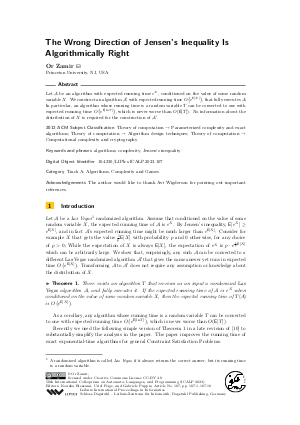LIPIcs.ICALP.2023.107.pdf
- Filesize: 0.6 MB
- 10 pages

 Creative Commons Attribution 4.0 International license
Creative Commons Attribution 4.0 International license











Feedback for Dagstuhl Publishing